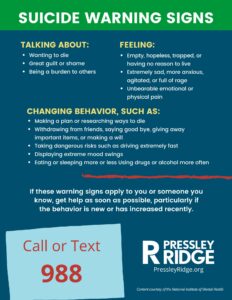Join Us for a Special Virtual Presentation: Caring for Caregivers

CARING FOR THE CAREGIVER
AN OPEN DISCUSSION ABOUT LOOKING AT SELF-CARE NOT JUST AS A FAD, BUT AN IMPERATIVE TOOL TO MAINTAIN A POSITIVE MENTAL WELL-BEING AS WE NAVIGATE OUR LIVES AS CAREGIVERS.

Caregiving, on its own, isn’t easy.
But caregiving — while also facing daily decisions that affect the harmony between our work and home life — is not only “not” easy, it can sometimes feel impossible. It’s why so many of us feel overwhelmed even THINKING about how we can add-in time to focus on our own well-being and foster the relationships with those in our village.
But NOW is not the time to accept that as normal.
In this session, Brea Schmidt — Pressley Ridge partner, entrepreneur, mom of three and the voice behind the 175,000- follower social media platform The Thinking Branch — shares her journey of navigating parenthood, entrepreneurship and mental health while encouraging conversation about the ways we as caregivers can embrace imperfection, shed working-caregiver guilt, prioritize our own wellbeing and find our community of support.
Join us on Tuesday, February 4th
7PM-8PM (Virtual)
Learn More or Register Now
However you identify as a caregiver in your personal or professional life — if you are someone who’s taking care of the needs of other people while trying to prioritize your own — this session is for you. We look forward to you being a part of it!
If you can’t join us, a recording of the presentation will be available. Please register at the link above to receive an email of the recording after the event.



 Pressley Ridge has been a dedicated advocate for children and families in the greater Pittsburgh region for nearly two centuries. What began as an orphanage on the North Side has grown into a nationally recognized organization that supports families in seven states through a continuum of trauma-informed programs and treatment foster care services.
Pressley Ridge has been a dedicated advocate for children and families in the greater Pittsburgh region for nearly two centuries. What began as an orphanage on the North Side has grown into a nationally recognized organization that supports families in seven states through a continuum of trauma-informed programs and treatment foster care services.
